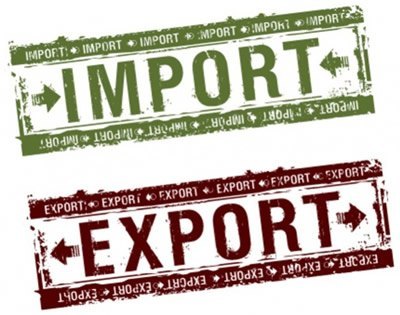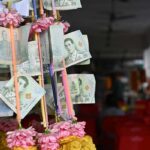Thailand is a great country to source products, whether it be clothes, handicrafts, or food items.
With numerous markets and factories offering goods at wholesale prices, many expats and holidaymakers consider importing products from Thailand to their home countries.
Whether shipping containers of fisherman's pants for wholesale distribution or selling Thai exports like t-shirts, silver jewelry, or gems on platforms like Etsy, Amazon, or eBay, the allure of low pricing is tempting.
But hold on. Before you dive in and risk your life savings, there are several factors to consider.
Remember: if it were that simple, everyone would be getting rich. As with all endeavors, careful planning and due diligence are essential for success
7 Golden Rules of Importing/Exporting from Thailand
Rule 1. Assess the Market
The first hurdle people face when selecting a product is choice: what should I sell?
It's easy to feel overwhelmed by the plethora of options available, especially after a visit to bustling markets like Chatuchak in Bangkok or the Walking Street markets of Chiang Mai.
Narrowing down to a single promising idea can be challenging. This is where you need to leverage your smarts, or else risk getting stuck in ‘analysis/action paralysis'.
The golden rule? Don't rush in. Take the time to thoroughly evaluate the market, your options, and the potential profit margins.
Create an Excel sheet and compile a shortlist of your ideas, with comments in one column beside each. Include additional columns for factors like breakage potential, shipping feasibility, existing supply and demand, and product longevity.
I recommend using a spreadsheet because it simplifies the process of assessing an idea when it's laid out in black and white, making comparisons with other ideas straightforward.
Once you have five or ten product ideas and columns outlining key considerations, you can swiftly weed out ideas that initially seemed promising but falter when it comes to profitability or shipping challenges.
While this approach may seem obvious, many people overlook it. Instead, they fixate on a single product and dive headfirst into ordering and shipping without fully considering potential pitfalls.
Rule 2. Research Customs & Excise
Once again, this seems like an obvious point, so why do many people wait until the last minute to conduct this research, or even after placing their first wholesale order?
It's possible that the product you intend to import to your home country is restricted, or at least subject to certain restrictions.
It may incur additional tariffs that inflate the price to a point where your business venture becomes unprofitable.
Another common oversight among importers is forgetting to account for customs duties upon receiving the item in their home country.
Importing from Thailand generally poses no issues. In fact, most manufacturers handle shipping arrangements on your behalf, working with trusted shipping partners.
However, it's crucial to understand the regulations applicable in your home country and ensure compliance with them.
Rule 3. Think Outside the “eBay Box”
Since a kid I've always been a wheeler and dealer. I've always loved selling things. It's not all about big profits either – just the thrill of making a buck.
Naturally, when eBay gained prominence in the early 2000s, I dabbled as a part-time seller, enjoying the extra income it provided.
Upon relocating to Thailand, my entrepreneurial instincts kicked in, pondering what goods could be sold overseas. Initially, I experimented with crafts and clothing, but with limited success. However, I never fully committed to any venture, leaving room for doubt.
Back in the UK, I was accustomed to selling high-demand, high-value items that moved quickly. However, the products I tried selling from Thailand had slim margins and lacked significant demand.
Shipping from Thailand posed a significant hurdle. Buyers often questioned quality and authenticity when parcels arrived from Southeast Asia.
Also, with clothes (women's) and jewelry, there are so many Chinese sellers selling for seemingly no profit at all it makes it impossible to compete.
That being said, I have met a few people making good money on eBay from Thailand. One guy ships suits back home, another buys and sells jackets, another prints t-shirts (making loads), and another sells meditation products.
Moreover, with the emergence of platforms like Amazon Marketplace and Etsy, as well as the option of selling through one's own website, the avenues for entrepreneurship have expanded.
In essence, while eBay can be a stepping stone to success, don't limit yourself. Explore avenues beyond eBay and consider building a sustainable business with a personal touch. This brings me to my next point.
Rule 4. Consider Wholesale Your Long-Term Goal
I once dated a woman whose father was an importer from the Middle East. He used to import parts for machinery and cars.
The genius thing about what he was doing was that the majority of orders were for 1,000 or more parts at a time.
So let's just say someone was building 20,000 of a particular tool, and they needed a particular part like a nut of screw. He might make just 25 pence per part, but the quantity he ordered meant he was absolutely raking it in. He told me that he would sometimes make £20,000 per order.
If he only fulfilled one order per month, that was still £240,000 turnover a year. He had a small office and employed just one person, and that was his son.
It will always be more profitable to fulfill wholesale orders to companies who then sell on to their customers than for you to sell individual items on a marketplace such as eBay or Amazon.
If you are looking to make a little bit of money in addition to your main income, or perhaps you're looking for something for your partner to start up as a business to be run from home, then selling items one by one online might not be a bad choice. You can also sell in local marketplaces or pop-up shops.
But if you want to make real money in the long term then wholesale has to be at the forefront of your mind. You want to be shipping in a container of product and delivering it directly to client who pays you immediately for the lot.
Opportunities like that of my ex-girlfriend's father in the example above are out there. Identifying them is not easy, and the pathway to finding them is never going to be a smooth one.
It takes trial and error, but like anything in life, those who stick at something and stay committed and work on it every day until they get it right are the ones who succeed.
Rule 5. Go Direct to the Wholesaler/Factory in Thailand
It is tempting to buy goods from marketplaces. You can get some very good deals for bulk items at popular Thai markets such as Pratunam, Chatujak, etc.
But it goes without saying that the traders at these markets are not selling it to you for the price they are getting for, unless they have discounted something to be a lost leader.
Of course, the market trader will be more than happy to sell you a bulk amount of goods because they will want to offload the stock and be able to purchase new stock. The bane of every market trader is cash flow: When you're holding a lot of stock, you haven't got cash to buy new stock.
In this regard, they aren't likely to give up their source supplier.
If you use your smarts and remain friendly and chatty, and politely offer to give them a tip for giving you the name of their factory supplier, it shouldn't be too difficult to leave the marketplace with a name.
Of course, you can go online and Google around for manufacturers of products you are looking for, but references are always good and quite often you won't find a lot of the companies because their websites are in Thai.
Endeavor to get as close to the source as possible. You will save yourself a lot of money.
You will also benefit from the fact that a factory or an export company will be able to advise on shipping options and of course package everything up properly and make sure it gets to you on time and in one piece.
Failing that, try searching on alibaba.com. You can access Thai, Chinese, and Indian factories on there.
Rule 6. Do Your Due Diligence on Thai Companies
Due diligence refers to the careful investigation or exercise of caution that a reasonable business or individual is expected to undertake before entering into an agreement or contract with another party.
This principle applies not only to conducting business in Thailand but also to any dealings worldwide, including your home country.
Over the years, I've heard from several people who have incurred losses while doing business in Thailand. While unfortunate, this experience is not uncommon and can happen anywhere in the world.
However, don't let such incidents deter you from importing goods from Thailand. Instead, ensure you conduct thorough due diligence.
Similar to Golden Rule 1, where I recommended creating a spreadsheet to evaluate product ideas, now you should compile a list of all the information you need to gather about a company before engaging in business with them.
Here's how you can make a start:
- Check out the website: Does the website use the HTTPS security protocol in the URL bar? This is typically a sign that a business maintains an updated website and prioritizes the security of its clients and visitors. You'll notice that TheThailandLife does utilize the HTTPS protocol. However, it's worth noting that some companies may have outdated or insecure websites due to being preoccupied with referral-based work.
- Vet the contact details: Go to the contact details section of the website and check if they have provided their full address and phone number. In today's digital age, we often communicate inquiries and conduct transactions via email. However, this convenience can make it easier for fraudulent businesses to operate. Instead, consider giving them a call. Express your interest and request details about their company and price list. Conduct a Google Maps search of their address to verify its existence. If you're in Thailand, consider visiting the address in person to ensure it is a legitimate place of business.
- Research their clients: Take a look at the website and check if they have a list of clients they do business with. You may recognize some of these clients from Thailand or even from overseas. This can provide insight into the company's reputation. Consider reaching out to one of these companies via phone or email to inquire about their satisfaction with the service they received.
- Request the registered company number: Every company in Thailand has one. You can request copy of their company certificate by email, too. In fact, providing a copy of your company certificate is a general requirement in Thailand when doing business with other businesses and indeed when dealing with banks and lawyers, etc.
- Check the government business database: You can research information on a company in Thailand by using the government database. Start here.
Don't be shy about asking for more information and thoroughly vetting a company. Any good business will understand your concerns and want to put your mind at ease.
Rule 7. Test Purchase Before Committing Big Money
Do not make the mistake of placing a big order without first testing the supply chain. Make sure the chain of supply works by placing a small order for an amount of money you can afford to lose.
This will also be your final due diligence to see if the supplier can deliver on their promise.
If it all goes smoothly, you're onto a winning supply chain.
Golden Rules Recap:
So let's just run through these Golden Rules quickly again:
- Don't rush into things hastily. Approach your venture with methodical organization. Begin by assessing the market and creating a “Product Ideas” spreadsheet to guide your search.
- Research the customs and excise regulations in your home country thoroughly.
- Think beyond eBay and explore other marketplaces and avenues for sales like Etsy and Amazon. Consider the potential of building your own brand.
- Plan for the long term. If you aim to establish a sustainable income, focus on developing a wholesale business model.
- Consider dealing directly with factories or wholesalers in Thailand to secure the best prices.
- Conduct thorough due diligence on Thai companies before investing your time and money.
- Before placing a large order, make a small test purchase to assess the quality and reliability of the products and suppliers.
It is definitely possible to sustain a good living exporting goods from Thailand. There are thousands of people doing it successfully. But the reality is that most won't tell you what they're exporting, who they buy from, and where they sell to.
The fact is, like any business, you have to put in the planning, research, and initial hard work to ensure long-term profitability.
Last Updated on




Steve Watson says
May 27, 2019 at 2:13 pm
TheThailandLife says
May 27, 2019 at 4:59 pm
Mari says
Apr 28, 2019 at 3:56 pm
Noni says
You can do the liquid import from Thailand to any country but depend on which type of oil for consume or skin care or for engine which you need to show factory MSDS (material safety data sheet of cause Thailand post refuse the all the shipment
for example I supply coconut oil and facial serum or body lotion I have no problem.
*** To pass the custom 2 reason1
1.) For export declaration if they have certificate of freesale I think no problem.
2.) Import clearance at destination the importer must understand which document require if you can clear why not?
Apr 25, 2021 at 11:32 am
Saliy says
Jan 30, 2022 at 5:04 pm
Kevin Williams says
Mar 23, 2019 at 8:05 pm
Thai Business says
Cars in uk are half price of thailand!
May 04, 2020 at 11:55 pm
Maria Cecile Lea Dela Cruz says
Mar 04, 2019 at 2:18 pm
TheThailandLife says
Mar 04, 2019 at 7:00 pm
S. Mae says
Apr 03, 2019 at 8:07 am
TheThailandLife says
Apr 03, 2019 at 5:15 pm
ิิิิิิิBrian says
Jun 17, 2019 at 11:25 am
Charlie says
I had an apartment in Silom near Saphan Taskin and and every other shop claims to be a wholesale jeweller.
Are there really bargains to be had? If so, what is the best thing to import to the UK or to other countries? Surely Gold price is gold price and silver price is ….. etc?
Also looking at exporting to other neighbouring Asian countries. Any advice?
Jun 22, 2019 at 6:21 am
Rose says
I'm wondering if there are any laws around exporting local hand made items for re-sale in an small online business back home (such as United Kingdom). I don't want to start doing this and be fined if I don't have correct licences for example.
Thank you in advance!
Dec 05, 2018 at 7:46 pm
Olav Harjo says
We are small family company in Estonia.
We want to start the export of Thai food products from Thailand to Estonia.
Should we look directly at food producers or better to use buying agents?
From which Thai region would be most reasonable to buy food?
Thanks in advance!
Nov 19, 2018 at 4:26 pm
Dan says
Nov 07, 2018 at 2:45 pm
Roy Bowey says
Are they bulky, or heavy ?
How often annually will you be exporting.
I may have a solution depending on your answer.
Apr 01, 2020 at 11:56 pm
Hanis says
Jun 25, 2018 at 12:01 am
sirilak says
Normally, suppliers accept to get payment by bank transfer or L/C. Anyhow, up to amount of payment and agreement between buyer and seller.
About cargo shipping, if the goods are small and light weight shall use courier (Such as FedEx, DHL, etc.). If the goods are big and heavy weight shall use air cargo. If you aren't familiar for shipping, you can request seller manage all for you.
Need any help, pls let me know.
Jul 12, 2018 at 8:22 pm
Thomas E Day says
Aug 18, 2018 at 4:45 pm
Nilisha says
Jun 18, 2018 at 2:26 pm
Spandana says
Nov 09, 2018 at 10:07 am
Tariq Ahmed says
Jun 17, 2018 at 5:51 am
Malik says
Can you plz let me know that why you need old news paper? What to do with that.
Thanks
Aug 11, 2018 at 1:42 am